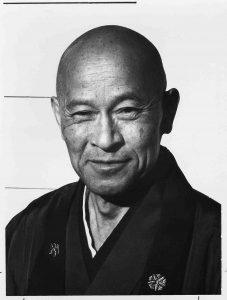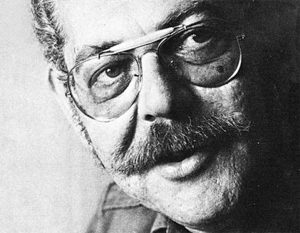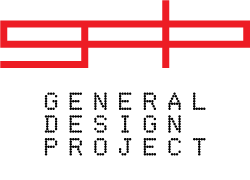GDP creates
- things
- places
- messages
provides guidance in
- product design
- architecture
- graphics
definitions:
general
affecting or concerning all or most people, places, or things; not limited in range of subject, application, activity, etc.
design
purpose, planning, or intention that exists or is thought to exist behind an action, fact, or material object
project
an individual or collaborative enterprise that is carefully planned and designed to achieve a particular aim
Design work affects how we live, mostly in a positive way. Lack of properly designed products and services is an underlying problem that needs addressing. Users, designers, products and services themselves, and communities, then in turn, society in general and the planet suffer as a result of inconsiderate practices and policies.
GDP is a group of concerned individuals focusing on how things work and pondering whether they can work better. The group decides the direction of the project and what problems to tackle, exploring solutions and constraints such as technology, finance, politics and public awareness. It’s a think-tank that can act.
Activities
To begin with, GDP will initiate or get involved in projects which are local and small scale, aiming to grow incrementally towards becoming able to deal with more wide-ranging and larger scale issues. The exercise is to morph into a think-tank which can also act on selected thoughts. In these formative years, GDP will focus on securing financial stability by launching products into the market and will offer clients expertise in designing products/services or ensuring required interaction between an existing product and a user group.
Also the foundations for a design academy will be laid. A programme of instructional seminars will form its basis. In addition, every year, three graduates of design and GDP will work in collaboration, contributing to each others’ agenda.
The group selects activities to ensure GDP is a centre of attraction for ideas, best practices, people who are good at what they do, and the financial means to realise its aims.
Four basic phases:
1.Think and talk
2. Go and see
3. Plan
4. Deliver
People
The agenda is intentionally broad and the members of the group come from a huge variety of backgrounds. To proceed efficiently, contributors are asked to choose a category which best describes them.
P I X E L
- Politicians: Local, national, parliamentarian, nonpartisan, grassroots or otherwise involved
- Investors: Ethical, sensitive, informed
- X: User, expert in the subject, guest speaker, surprise element, randomiser
- Enablers: Product designer, architect, graphic designer, engineer, project manager, coordinator, any one or all of the students
- Leaders: Artist, scientist, thinker, outlier, extraordinary person
Currently GDP benefits from the practical and theoretical wisdom of a network engineer, a product designer, a local politician, a scenographer, some graphic designers, two architects, a local printery, a cabinet maker, a joiner, a steel fabricator, a fashion guru, some web developers and a host of curious onlookers.
Recruitment
It is not a coincidence that GDP is also the abbreviation for Gross Domestic Product, a statistical indicator of development, bearing in mind “the limitations of using it as the overarching measure of economic and social progress.”(1) When a designer comes up with a solution, the resulting development will always have an effect upon the people involved, mostly workers. GDP is aware of the consequences of design practice: we create businesses and factories around artefacts, then find suitable people to produce these artefacts. We change/disrupt/preserve not only the industries we are involved in but also the lives of the workers of those industries through interfering with their health and safety, their living standards and, in many cases, their choice of where to live.
We think that we’re in the artifact business, but we’re not; we’re in the consequence business.(2)
1.000 WORDS MANIFESTO, Allan Chochinov
GDP follows and researches best practices in training and recruiting the local workforce in its projects.
Output
GDP comprises of thinkers and makers working on open-ended and open source projects together with users. Myriad opportunities present themselves constantly and GDP needs to put things into perspective. Our activities are focused on acheiving three main objectives in the next few years: setting up a Design Academy, involving graduate designers in presenting their By-products of Learning and creating a space in order to maximise Local Involvement.
Design Academy
A place for continual learning for people interested in the design process: professional / graduate designers, enthusiasts, users of design products (things, places, messages), thinkers, artists, scientists, teachers, analysts (behavioural, urban, anthropological, political, environmental), investors, agents of local and central government, etc. This list is open to expansion as far as the accommodation and quality of learning / exchange is of the highest possible quality.
By-products of Learning
Three chosen designers complete an academic year with GDP at the end of which they all take lifelong responsibility of a sustainably and ethically manufactured design of a product/service/building. GDP provides the expertise, the funding and the tools necessary to realise their first ever personal project, in exchange for which GDP receives equity to sustain its activities.
Local Involvement
GDP will build its building, produce its electricity, provide food and light entertainment for those who frequent the premises, involving as much expertise, interest, labour and love as there is in the particular city. GDP has an ‘open door policy’ for members of the public in matters of its development and workings, being mindful of health and safety, and conversely GDP academicians will be asked to spend a certain proportion of their time to provide solutions for issues raised by locals.
Approach
The following people’s ideas have been influential.

‘Zen Mind, Beginnner’s Mind’
Our “original mind” includes everything within itself. It is always rich and sufficient within itself.
You should not lose your self-sufficient state of mind. This does not mean a closed mind, but actually an empty mind and a ready mind.
If your mind is empty, it is always ready for anything; it is open to everything.
In the beginner’s mind there are many possibilities.
In the expert’s mind there are few.

‘Design for the Real World’
As Papanek traveled around the world, he gave lectures about his ideas for ecologically sound design and designs to serve the poor, the disabled, the elderly and other minority segments of society.
How could the designer, who must
(like others) make a living, actually serve ‘real needs’ of human beings?
“I have tried to demonstrate that by freely giving 10 percent of his time, talents, and skills the designer can help.”
In other words, a willingness to volunteer.
Please send us an e-mail outlining the project you are working towards along with your reasons for wanting to get involved with GDP.
Atakan Mercan
(1) https://en.wikipedia.org/wiki/Gross_domestic_product
(2) https://designmanifestos.org/allan-chochinov-1000-words-a-manifesto-for-sustainability-in-design/
